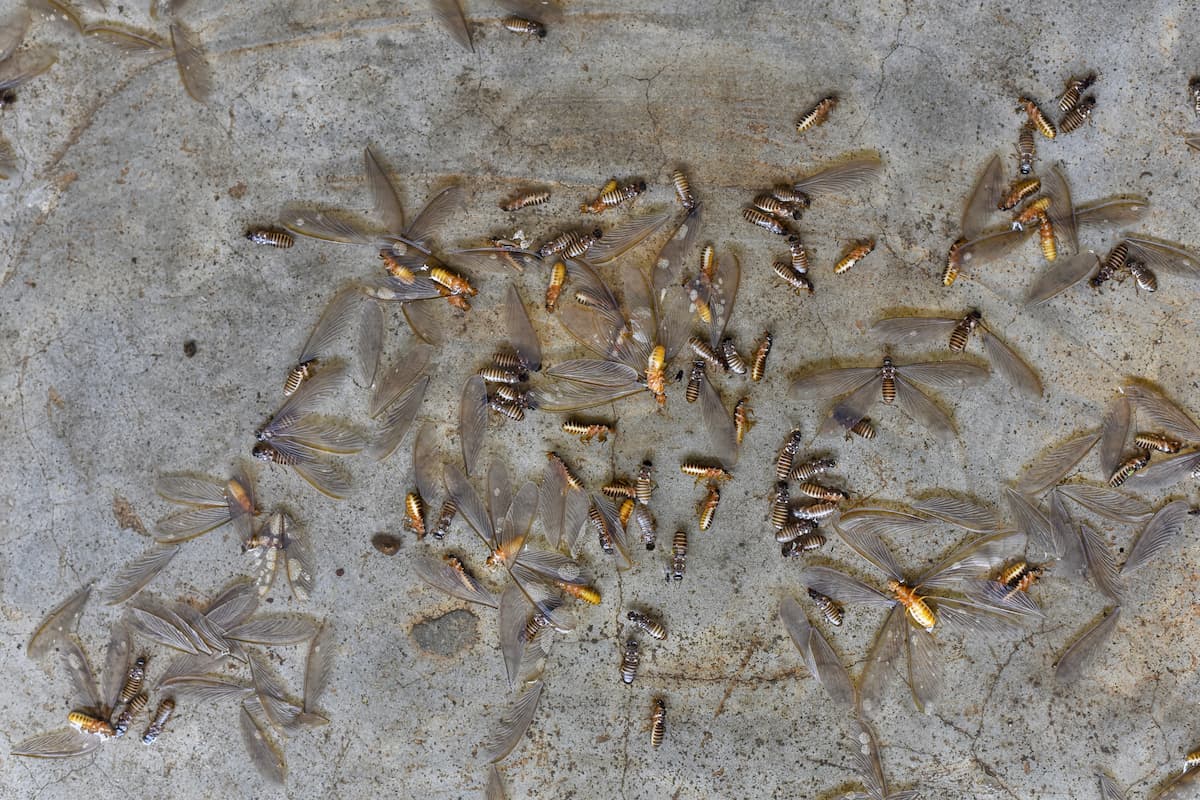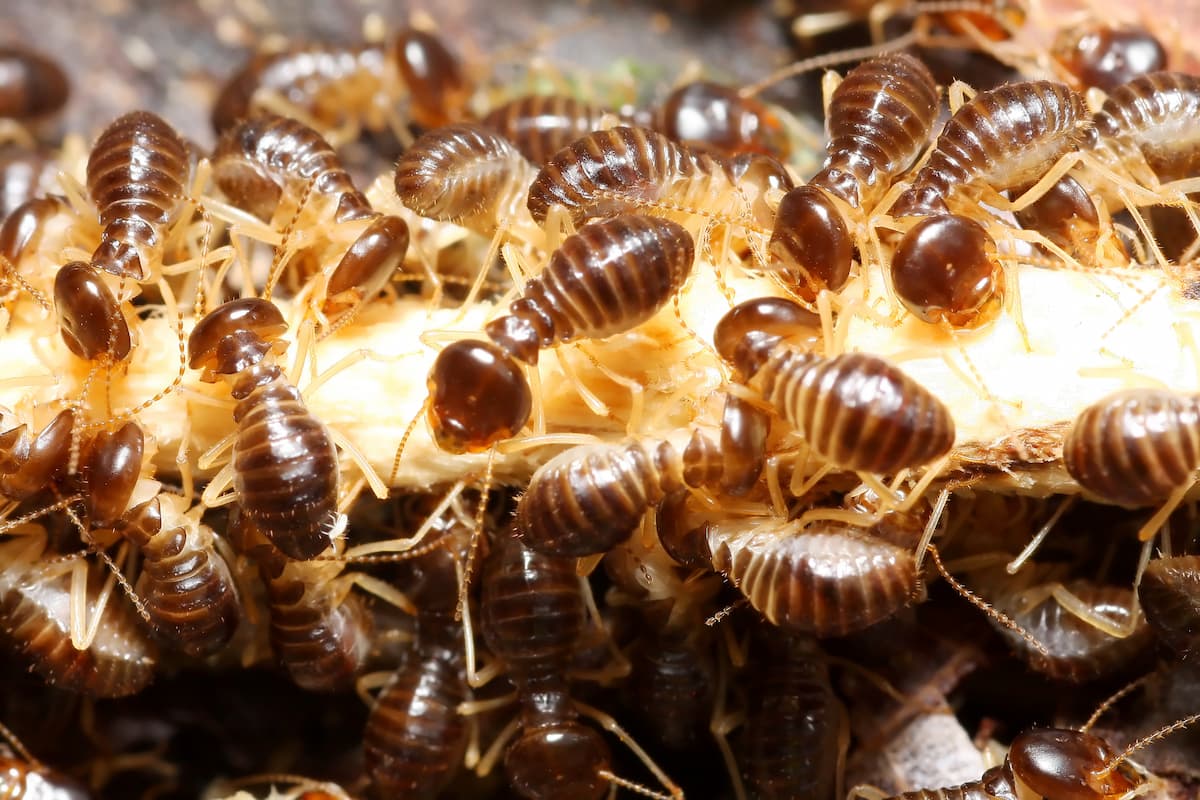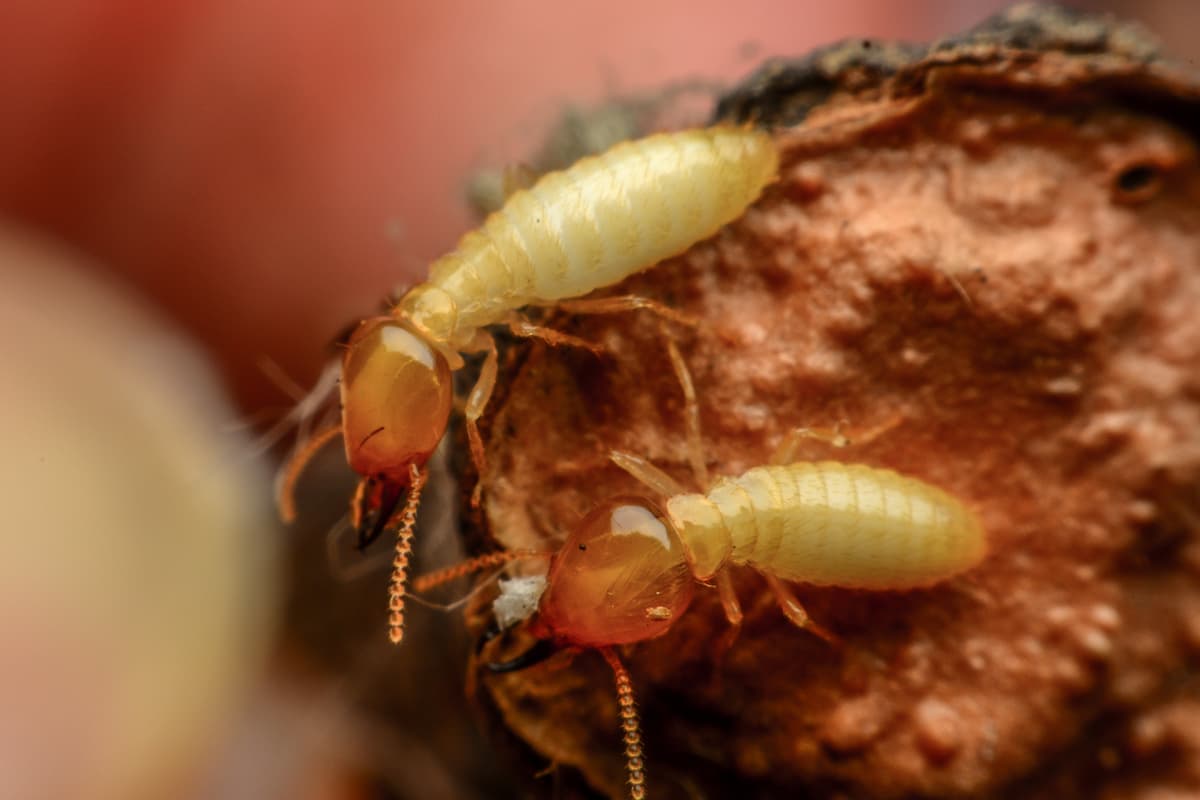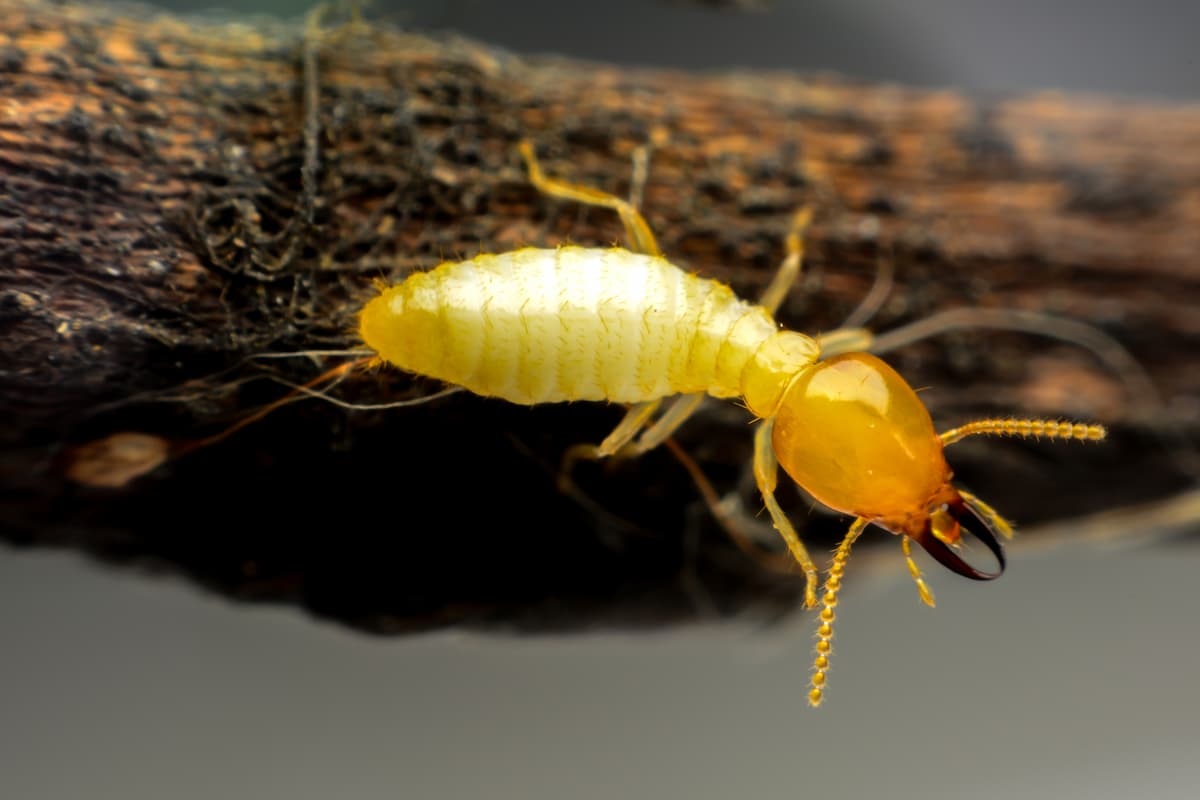Do Termites Need Oxygen?
If you are thinking of ways to kill the termites in your house, you might consider suffocation.
But, you may wonder, do termites even need oxygen?
Like all other creatures, termites need oxygen to survive. However, it takes upwards of 18 hours to suffocate a termite because they require so little oxygen. Luckily, there are much better ways of eliminating a termite infestation than suffocating or drowning them.
Will Termites Die Without Oxygen?

Yes, termites will eventually die without oxygen.
Yet, unlike humans and many other animals, who will expire within a few minutes, termites can make it close to a day without air.
You see, termites, like most other insects, do not need much oxygen when compared to humans.
They don’t require a lot of oxygen because their metabolic rates are much lower than ours.
Also, small creatures, like termites, don’t need a lot of air to oxygenate their cells.
Thus, if you placed termites in a plastic bag, for example, they could survive for a long time on the tiny bit of oxygen trapped inside.
Can I Kill Termites by Suffocating Them?
Technically, you can kill termites by suffocating them since they will eventually die without oxygen.
However, suffocating termites to death is difficult, so you’re much better off choosing a more straightforward method of offing any termites you caught.
For instance, it is much easier and quicker just to smash a termite rather than going through the trouble of trying to suffocate it.
And when it comes to the termites hiding in your house, there isn’t even a way to suffocate them because you will never be able to get your home’s oxygen levels low enough.
How Do Termites Breathe?

Termites and other insects do not breathe as humans do.
One major difference is that termites do not breathe through their mouths.
Rather, termites breathe by allowing oxygen into tiny holes along the sides of their bodies, called spiracles.
Termites also do not transport oxygen around their bodies in the same way as people.
Humans, and other mammals, move oxygen around their bodies in their blood.
But, insects do not have the type of pressurized circulatory system we do.
What I mean is that blood does not get pumped around their bodies, so there is no point in having oxygen in their blood.
Instead, the oxygen in bugs moves through hollow tubes called tracheae.
These tracheae transport the oxygen straight to the insect’s tissues.
Did You Know That Termite Mounds Breathe?
While termite mounds do not technically breathe, they do have a unique ventilation system that expertly moves oxygen and carbon dioxide to and from the colony.
This “breathing” works because of the intricate way termites set up their mounds, the changing temperatures throughout the day, and the fact that warm air rises.
You see, termites set up their mounds with a central chamber with thin tubes around it.
During the day, the air is warm, which heats up the air in the tubes.
This action causes the warm air in the tubes to rise, which in turn makes the cooler air in the central chamber sink, letting in oxygen from outside.
After dusk, the reverse occurs.
When it gets chillier at night, the air in the tubes cools, causing the air in the central chamber to rise.
Thus, carbon dioxide, which has built up during the day from the colony’s respiration, leaves the mound.
Therefore, in essence, a termite mound is like a giant lung that provides oxygen to the colony and removes carbon dioxide.
Will Termites Drown?

So, if suffocating termites won’t do the trick, will drowning them finish them off?
Unfortunately, no.
I mean, termites will eventually die if you drown them because they won’t have any oxygen.
But, it is extremely difficult to kill termites by drowning them.
The reason that you can’t eliminate termites by drowning is that they can hold their breath for a really long time.
As I said earlier, termites do not need much oxygen to survive, and they can live without it for several hours.
Thus, to drown a termite, you would need to apply water to it for hours on end.
And if the termite gets air for even a second, you have to start all over again.
Additionally, termites, like fire ants, can tread water.
Many of them can do this for four days if they must.
Therefore, don’t think sticking the hose in the termites’ nest is going to get rid of them.
Does Fumigation Suffocate Termites?
If you’ve ever seen the big tents they put over houses during termite fumigation, you may wonder if it’s meant to suffocate them.
However, the prime goal of fumigation is to poison the termites to death using insecticides, not strangle them.
Yet, technically, during fumigation, all of the oxygen in the house is turned into poison.
Thus, you could, in a way, say that the termites are suffocating during fumigation.
But, in reality, the termites aren’t dying from lack of oxygen.
Instead, it is the poison that ends them.
In the United States, the most common chemical used to kill termites during fumigation is sulfuryl fluoride.
This compound causes their cells to stop producing energy, leading to a quick death rather than prolonged asphyxiation.
Can Termites See Me?

Some termites can see, while others can’t.
The most common types of termites, workers and soldiers, do not have eyes and are entirely blind.
Swarmer termites, though, and kings and queens do have eyes, but they are rather weak and can’t see much.
Thus, you really don’t have to worry that a termite sees you coming when you try to capture it.
However, instead of seeing, termites can detect vibrations, which may send them running if you get too close.
Can Termites Think?
Anyone who has dealt with difficult pests such as termites has probably started to wonder if the little creatures are smarter than we tend to think they are.
Unfortunately, though, science doesn’t really have an answer to that question.
Ultimately, termites must have some sort of thought or at least collective thought, or else they wouldn’t be able to work together so well.
For example, if you destroy part of a mud tunnel, the termites will soon be there to fix it, and they will be working together while doing it.
But how do they accomplish this if they don’t have complex brains?
Well, one theory compares a termite colony to a single human brain.
In this hypothesis, each termite is like one brain cell.
And one brain cell can’t do very much on its own.
However, when you have lots and lots of brain cells, you get an intelligent mind.
So, basically, the idea is that termites aren’t intelligent on their own, but as a unit, they are quite smart and definitely capable of thought.
Conclusion
Overall, termite biology is quite a fascinating topic because they are so different than human beings.
Yet, one thing they do have in common with us is their need for oxygen.
